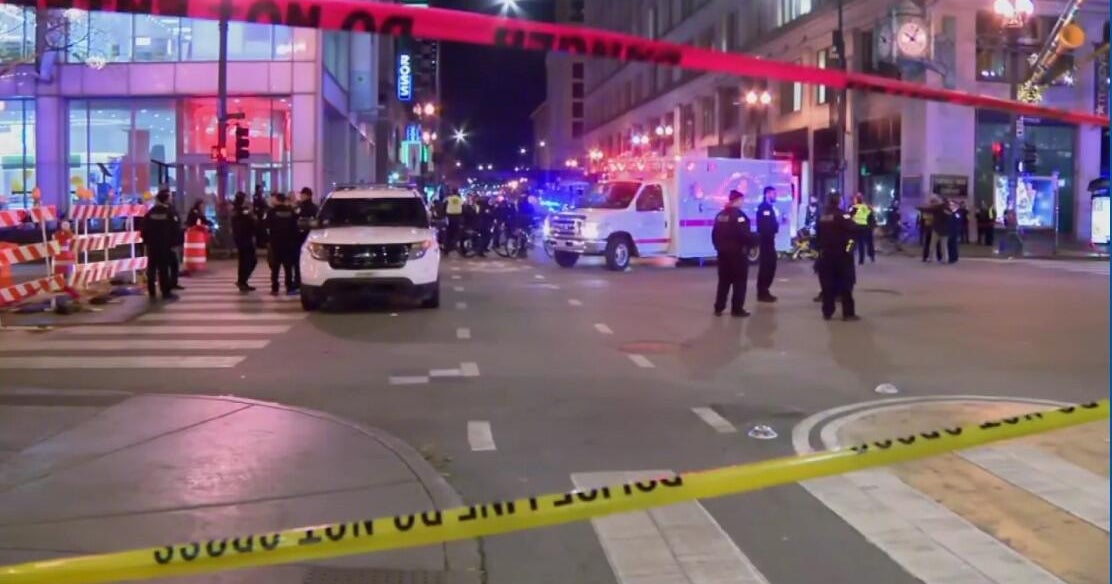More cars have been stolen in May and June this year than in the corresponding period in more than 20 years, new data reveals, even as the Crisafulli government insists the rate of car theft is falling.
The analysis of more than three decades of reported Queensland car thefts comes after the state government dumped a trial of car immobilisers, arguing there was little evidence the program was working.
The former Labor government launched the trial to supply engine immobilisers to residents in the car theft hotspots of Mount Isa, Cairns and Townsville from August 2023, and planned to roll it out statewide in 2025.

New data shows there were more car thefts reported in Queensland in June 2025 than any other June since 2001.Credit: Michelle Smith
The scheme offered people a $500 subsidy voucher to buy an immobiliser, which stops the car from starting until a PIN is entered.
But after the LNP won government with a promise to crack down on crime, the car immobiliser subsidy program was dropped, with the police minister claiming an unreleased report found them to be ineffective.
This masthead can reveal there were 1562 car thefts reported in Queensland in June this year – more than any other June since 2001. This May was also the worst May recorded since 2001, with 1694 unlawful use of motor vehicle offences reported.
There were fewer car thefts reported overall in the first six months of this year compared with 2024 and 2023, but that was still higher than any year from 2002 to 2022.
In the three cities where the immobiliser trial took place, car thefts decreased by 346 in Townsville in 2024 compared with the previous year, and by 33 in Mount Isa, but increased by 68 in Cairns.
In the first six months of this year, the number of unlawful use of motor vehicle offences reported in Townsville and Cairns dropped.
Police Minister Dan Purdie would not comment specifically on this data or the review into the immobiliser trial.
Instead, Purdie pointed to the Making Queensland Safer Laws, saying there had been a 4 per cent decrease in stolen cars across the state since the laws came into effect.
Purdie said this meant there were 445 fewer cars stolen in the first half of this year, compared to the same period last year.
“There’s still more work to be done to drive down crime in our communities,” he said.
He has previously said a remaining $4.5 million from the immobiliser trial would be reallocated to other crime-prevention programs, but did not elaborate on how the funds would be spent.
The government said during the trial, several vehicles fitted with immobilisers had been stolen, and there were risks of immobilisers being used as a form of coercive control.
The Queensland Police Union had long pushed for the technology, with former president Ian Leavers claiming it had the potential to significantly reduce vehicle theft. The union was unable to comment when approached last week.
Associate Professor Andrew Hemming from the University of Southern Queensland said a typical immobiliser cost between $1000 and $1500 to buy, and between $50 and $160 to install, leaving a minimum of about $550 for the car owner to pay.
“The likelihood is that the scheme benefited those with the income to pay the difference, who also owned a car of sufficient value to be a target for car thieves,” he says.
Loading
“The problem in identifying the benefit of the car immobiliser scheme is the same as if the subsidy had been for a burglar alarm, namely, the thief moves on to another house or car not so well protected.”
He said more police resources in trouble spots, the targeting of locations for metal detection scans, and tighter bail laws, would also affect crime rates in Townsville, Cairns and Mount Isa.
Money that would have been spent on immobilisers could be redirected, Hemming said, to police overtime or grants for better lighting at trouble spots, such as bus stops and railway stations.
He said another alternative would be to provide vulnerable citizens, such as the elderly and disabled, with personal protection alarms.
“However, any crime prevention program faces the difficulty of identifying the effectiveness of one program from all the other initiatives and police resourcing priorities,” he said.
A month before the state election, police said there were no reports of a vehicle fitted with an immobiliser being stolen, and there had been several instances where they had prevented a theft.
Lisa Cohen, owner of LC Distributors, which supplies immobilisers to installers, urged the government to restart a trial and assistance program to help car owners protect their vehicles.
“Stopping car thieves stops them committing multiple crimes, and as we have seen in recent years, car theft can result in the loss of life on Queensland roads,” she said.
“The best way to stop these offenders is for car owners to install a secondary immobiliser.”
In a case study provided by police last year, Mick from Cairns said his car was pushed down the street but left abandoned when the immobiliser stopped it from starting.

Mick from Cairns has a vehicle immobiliser installed.Credit: Queensland Police Service
“It’s not in the car, so they don’t even know it’s got an immobiliser … They’ve gone to flick the keys and nothing’s happened,” he said, holding up his key pad, which he does not keep inside the car.
“It gives me peace of mind. I still hide everything of a nighttime, but I know that they’re not going to be able to get that car to go anywhere.”
Most Viewed in Politics
Loading


















































